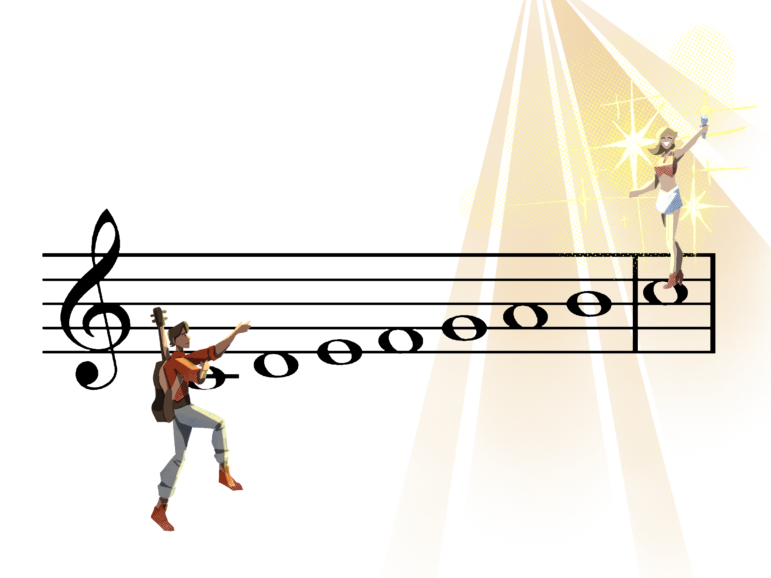
Having seen Gracie Abrams live twice now — first as an opener for Taylor Swift’s Eras Tour and more recently at her own sold-out show — I can’t help but feel a mix of admiration and skepticism towards her. Her energy in the venue was palpable, and her voice deeply resonated with the audience. Yet, watching her, I couldn’t shake the thought: is her success merely a result of talent, or does her family’s influence provide her with an unfair advantage?
As the daughter of renowned producer and filmmaker J.J. Abrams, Abrams fits the textbook definition of a “nepo baby.” This term is used to describe individuals who leverage their famous lineage to navigate the music industry. She’s not alone in this regard; Clairo, another indie darling, has faced similar scrutiny since her advertising executive father’s major music company connections sparked accusations of her being an “industry plant.” Both artists’ success stories often trigger backlash, as many perceive them as beneficiaries of privilege rather than hard-earned merit.
The music industry is dominated by major players — think Universal Music Group and Warner Music Group — who decide which artists to elevate. Connections often trump raw talent, and that’s a tough pill to swallow.
At the core of this issue lies the identity crisis of the indie genre itself. Indie music has historically been about scrappy, do-it-yourself artists who start from the ground up — playing small venues, self-funding their albums and slowly building an authentic fan base. When artists with industry backing are marketed as “indie,” it feels disingenuous, as though the genre has traded its gritty authenticity for a polished aesthetic. The charm of indie has always been its rawness, and the rise of nepo babies in this space is a troubling departure from that ethos.
Then there’s the role of misleading narratives perpetuated by the industry. Biased reviews and over-the-top press release campaigns create a distorted picture of what true talent looks like. Are listeners genuinely celebrating artistry, or are they buying into a manufactured hype? When high-profile artists bask in accolades, it can oftentimes overshadow the hard work of countless others who just need a break to shine.
The financial reality for independent musicians only exacerbates these challenges. The industry already pays most artists poorly, and for those without connections or a wealthy safety net, making music is often a financial risk. Privileged artists can afford to fail, but for those without that safety, failure can mean the end of a career. The pressure to balance artistic freedom with financial survival can stifle creativity, forcing many to compromise on their vision just to make ends meet. It’s not just about who gets ahead; it’s about how the system makes it harder for some artists to even stay in the game.
Despite these challenges, there are still artists breaking through. Mitski, for instance, released her first albums while navigating the challenges of being a broke college student. Phoebe Bridgers carved her niche with Dead Oceans, a label that champions independence. Chappell Roan spent nearly a decade working in the music scene until her career breakthrough this year. These artists embody the true spirit of the genre, reminding us that success can come from sheer determination.
But these success stories remain the exception in an industry that often values connections rather than talent. It’s frustrating to see countless talented musicians grinding away, waiting for their moment to shine. As the music industry evolves, audiences need to ask the hard questions: why are artists with connections still able to rise so easily while others struggle to even get noticed? And how long are listeners going to ignore the fact that not everyone gets a fair shot? If the indie scene wants to remain true to its name, it needs to be a place for genuine talent, not a haven for the well-connected.



